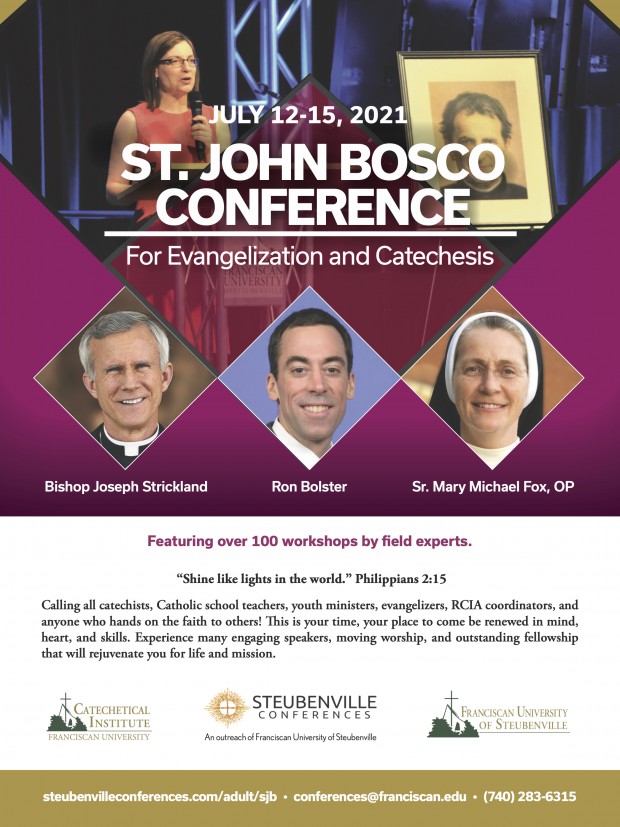Youth & Young Adult Ministry: Teaching Teens to Pray
How to change a flat tire. How to turn off the water to an overflowing toilet.
How to manage money, create a budget, and balance a checkbook.
How to perform the Heimlich maneuver or CPR in an emergency.
Youth & Young Adult Ministry: Parish Youth Ministry: Considerations for Getting Started
One of my primary roles in my work for the Church has been to respond to questions from parish priests and lay leaders about how to start a youth group or the right time to hire a youth minister. As I’ve met with these individuals to discuss these questions in greater depth, I’m often struck by the “why” of the questions. What are they wanting to accomplish? Some of them have few, if any, youth involved in their parish so they are looking to hire a staff person or to start a program that will better engage the youth. Some are starting to see youth wanting to get more involved and they are seeking to offer support. Honestly, several times the leaders in the parish simply state that they want an active youth group because the church down the road has one or they have fond memories of their own childhood youth ministry.
Despite a plethora of reasons for starting or improving youth ministry, there are really only two common responses the average parish considers: starting a youth group or hiring a youth minister (or a combination of these two). When discerning the best path forward, it’s important to take time to consider the known options but also to have an openness to whatever it is that God desires. The risk of not doing so can hinder a ministry’s fruitfulness. Also, if decisions are made out of ignorance, pride, or even simply an impatience with the current realities, the ministry itself can be disordered from the start.
Though there isn’t a “one size fits all” option and I don’t claim to know what God’s will might be for any given situation, my hope here is to share with you some of the ways that I’ve seen youth ministry work most effectively. In the following paragraphs, I’ll explain a certain option, some of the benefits of implementing it, and finally some of the limitations and implications of each initiative.
AD: Parish App that Keeps You Connected--Free Download
Stay connected to your parish or school. Download myParishApp here for free.

This is a paid advertisement in the July-September 2021 issue. Advertisements should not be viewed as endorsements from the publisher.
Youth & Young Adult Ministry: Spiritual Multiplication: What Exactly Are We Talking About?
 How do you bring someone to faith in Jesus Christ? As Christians, this is a question we should have a ready-made answer for.
How do you bring someone to faith in Jesus Christ? As Christians, this is a question we should have a ready-made answer for.
Children's Catechesis: Forming Children &Teens as Missionary Disciples
In the 1997 General Directory for Catechesis, “Missionary Initiation” is listed as a sixth and unique task of catechesis. The 2020 Directory for Catechesis folds this task into the fifth task of catechesis, “Introduction to Community Life,” with the logic that an integral part of being formed in Christian community is learning to contribute to the growth of the community through our baptismal vocation as missionary disciples.[1] The Catechism of the Catholic Church calls mission work “a requirement of the Church’s catholicity,” meaning that because the Church is for all humanity, we must be a welcoming people, taking Christ’s message to others.[2] In fact, the Second Vatican Council called the Church “the universal sacrament of salvation.”[3] We are the visible sign to the world that Christ welcomes all to life in him. Taking Christ to the world is not only a collective responsibility, but also an individual one. In his encyclical letter Redemptoris Missio, Pope St. John Paul II calls missionary activity “a matter for all Christians.”[4] This includes, of course, the youngest Christians in our community, the children and teens we form in parish and school catechetical programs.
Notes
[1] See USCCB, Directory for Catechesis (Washington, DC: United States Conference of Catholic Bishops, 2020), no. 89.
[2] See Catechism of the Catholic Church, par. 849–856.
[3] Second Vatican Council, Lumen Gentium, no. 48.
[4] John Paul II, Redemptoris Missio, no. 2.
From the Shepherds: Formation in Digital Media
In 2020, the Shepherds of the Church gave us a treasure in the new Directory for Catechesis. Dr. Farey was a member of the working party for the bishops on the new Directory and shares additional reflections on its practical implications in this issue and the next two issues.
Youth & Young Adult Ministry: The Use of Media in Youth Ministry
It’s no secret that over the past year the use of media has become a near necessity, causing its importance in our youth programs to skyrocket. The conversation about what it looks like to effectively use media within the realm of youth ministry is more paramount today than it has ever been in the Church’s history.
There is certainly no lack of differing perspectives when it comes to the best media practices, and there’s not necessarily “one right way” to engage with the youth culture through media. But there are most definitely some dangers in regard to the use of media within youth ministry as well as some practices that can help us become lights in the lives of our young people.
Catholic Schools: Three Things I Love Most About Being a Catholic School Teacher
I’ve had the pleasure of being a certified teacher for twenty years now. I started my teaching career in a public school, and have spent the last five years teaching middle school students at a Catholic school outside of Phoenix, Arizona. Most teachers will agree that the greatest reward of teaching comes from watching students grow academically and socially. In a Catholic school we have an added bonus and responsibility, which is to help guide students as they form their spiritual life.
Our youth face the difficult task of navigating a social and public landscape that is often in opposition to the teachings of the Church. Being a catechist has become increasingly difficult with each passing year. Our children are bombarded with messages online, on television, and with their peers. Too often, these messages run counter to the Gospel. This is why it is more important than ever to teach the truth and to give young people the tools they will need to defend the faith. The best way to do this is to live the truth and teachings of the Church in our own lives.
The love we have for Our Lord should pour out of our hearts and be visible for all to see through not only our actions but our words. The old adage, “Don’t just talk the talk, walk the walk” comes to mind when I think about being an example for young people. Children need to see us at Mass and receiving the sacraments. Just recently, my students attended a retreat at which the Sacrament of Reconciliation was offered by several priests. There was a lull in the participation where children were looking to see who would go up next. I decided it would be a good idea to hop up and head into the confessional to demonstrate that I am a sinner in need of the Sacrament of Reconciliation just as much as they are. The kids looked a bit surprised, but I noticed when I got back to my pew to pray some of my reluctant students went up to receive Confession.
Here are the three things I love most about being a Catholic School Teacher:
Recovering Nature and Building Culture in Catechesis
It is not a secret that knowledge of the faith continues to decline. It is tempting to insist simply upon teaching more doctrine, but this overlooks a more fundamental problem. What is catechesis really about? It is not simply knowledge of the faith but knowledge of the living God, a knowledge that includes and goes beyond simply the intellect, as it must include a complete transformation of life. We are not simply missing knowledge of the faith but the entire structure of life and culture that should undergird and support this knowledge.
The Cultural Foundation for Catechesis
Grace builds upon nature, according to the scholastic adage. By “nature,” we mean the natural foundation of human life—our ability to think, make free choices, and order our lives through good habits. Even more foundationally, nature refers the basic soil of human potential that God uses to draw forth his divine fruit. But how would we describe the “state of nature” today? It is not a stretch to say that the soil of human life has worn thin through the saturation of technology and a fundamental change in the way we understand and relate to one another, mediated by a screen with less interpersonal contact. Catechesis has to compensate for these challenges, seeking to build up a more robust community to provide a stronger cultural context to receive the faith.
Just as grace builds upon nature, so faith builds upon culture. In fact, Pope St. John Paul II declared faith to be “incomplete” without a culture to live it out faithfully.[i] Culture is a shared way of life, one that is necessary because Christians need to live out their faith in communion with others. As we know from our own experience, it can be quite difficult to live the Christian life when you are pushing against the cultural currents. Perhaps our religious education has fallen short because we have not attended closely enough to the cultural dynamics of faith. Right thinking, healthy living, rightly ordered work, and robust community all contribute to building up the soil needed to support the Christian life.
AD: Summer Conference for Catechists and Catholic School Teachers
Click here to learn more about this enriching conference with a wide array of speakers and topics.



